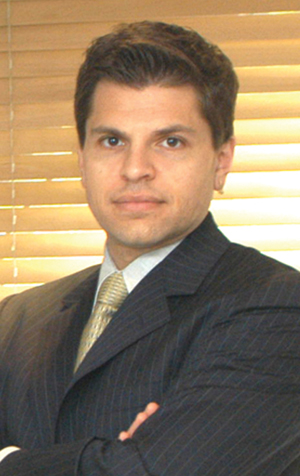The same day the government settled its dispute with the Criminal Lawyers’ Association last month, a former leader of the boycott was getting set to start a new job with Legal Aid Ontario’s new major case management office.

The move comes as controversy continues to surround the fledgling office, whose staff the criminal bar is labelling public defenders.
The CLA argues its creation was just another tactic by the province designed to crush the protest. But now, even with the stalemate broken and a provincial commitment to a private
criminal bar formalized, the office remains open for business.
“Now that the [attorney general] has committed to a more proper level of funding, legal aid is saddled with the contracts of the public defenders as well as the contract lawyers they hired,” says Paul Burstein, president of the CLA.
“It seems to me a colossal waste of precious legal aid money.”
That one of those staff lawyers was a former CLA regional director and vocal advocate for the boycott adds to the intrigue.
Last November, in the sixth month of the boycott, LAO posted a job ad for criminal counsel. At the top of the list of job duties was to “conduct litigation of serious criminal trials and appeals” for legal aid clients.
Subsequently, it entered into retainer agreements with two private members of the bar.
Criminal defence lawyers in Sudbury, Ont., were stunned to learn the following month that their CLA representative had accepted a job with LAO.
In rallying the small, close-knit criminal bar in Sudbury, Craig Fleming had previously decried years of political neglect by the province and the burden placed on the poorest accused while insisting on the need for an injection of money, according to his former colleagues.
Fleming was the first Sudbury lawyer to formally lend his support to the boycott and he encouraged his fellow practitioners to do the same, says John Saftic, one of about a half-dozen Sudbury lawyers exclusively dedicated to criminal defence.
“On our end, Mr. Fleming was always an advocate of the boycott and was supporting the boycott right up until he took the job with legal aid.”
Another area criminal lawyer, Glenn Sandberg, says the change of allegiances prompted shock and disappointment.
“Mr. Fleming changed teams,” he says. “The rest of the bar held firm.”
He adds that during the boycott, he acted on a number of Fisher applications for enhanced funding for counsel representing those accused of the most serious charges.
It was when lawyers began filing those funding applications with regularity that LAO established the office, Burstein notes.
“It was perhaps nothing more than a stop-gap measure aimed at defeating the funding applications,” he says.
If a public defender stepped into a trial, he argues, it could certainly no longer be argued that an accused couldn’t find representation. That’s the first test counsel had to meet before a judge might order higher rates.
“One questions whether Legal Aid Ontario should have taken on that role,” he adds.
But before Fleming or a second lawyer hired as staff counsel started on the job, the province and the CLA settled the dispute.
“In terms of karmic justice, Mr. Fleming started his first day on the job the day we resolved our differences with the attorney general,” Sandberg says.
Burstein now questions the role of the case management office and how it fits into the agreement with the province.
“There’s a recognition by the [attorney general] that the private sector provides a higher-quality, more efficient service for Ontarians in need of legal aid services than a public defender system can,” he says.
In response to a request for comment,
Fleming tells Law Times that as an LAO employee, he can’t discuss the matter. For its part, LAO provided a short e-mailed response that noted two staff lawyers had joined the office in Toronto.
“Legal Aid Ontario is moving forward with the establishment of a major case management office to provide effective oversight of the defence of publicly funded serious criminal cases, help avoid unnecessary court proceedings, litigate serious cases if required, and ensure the efficient use of taxpayer dollars,”
spokesman Kristian Justesen wrote.
He added the new office will follow the models used by the big case management program, the legal aid tariff for disbursements, and LAO’s panel standards for extremely serious criminal matters.
Meanwhile, confusion reigns among defence lawyers in Sudbury about the new office and the decision of their former colleague to join, Saftic says.
But he wonders whether Fleming may now actually be in a position to advocate for the criminal bar and to effect changes from inside the system.
Fleming may have some authority over the big case management budget, Saftic notes, adding he could also be in a position to review applications for defence experts as well as co-counsel or junior counsel.
“He’s worked on the defence side and understands how it’s underfunded.”

 The move comes as controversy continues to surround the fledgling office, whose staff the criminal bar is labelling public defenders.
The move comes as controversy continues to surround the fledgling office, whose staff the criminal bar is labelling public defenders.